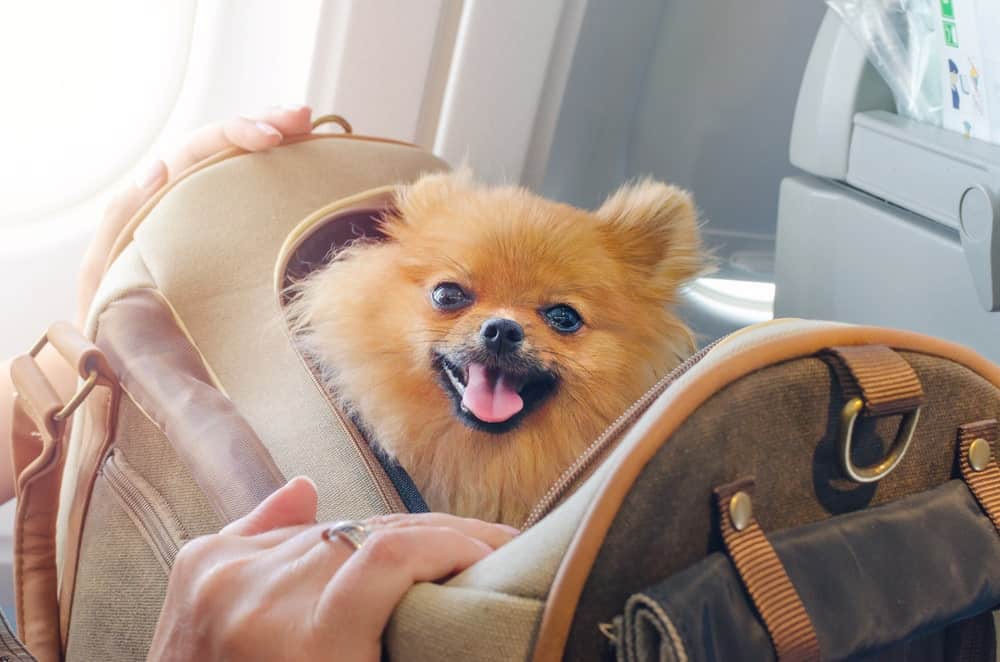“This post contains affiliate links, and I will be compensated if you make a purchase after clicking on my links.”
The U.S. Department of Transportation (DOT) has proposed a ban on allowing passengers to bring emotional support animals onto planes, limiting them only to trained service dogs.

Increased customer complaints and lobbying from airlines prompted the U.S. Department of Transportation to propose new laws that restrict passengers from bringing emotional support animals on board, limiting on-board animals to strictly trained service dogs only.
The Notice of Proposed Rulemaking (NPRM) on Traveling by Air with Service Animals can be found HERE and provides the public with 60 days to comment on the proposed changes.
The proposal addresses concerns raised by individuals with disabilities, airlines, flight attendants, airports, other aviation transportation stakeholders, and other members of the public, regarding service animals on aircraft. According to a statement, the Department “recognizes the integral role that service animals play in the lives of many individuals with disabilities and wants to ensure that individuals with disabilities can continue using their service animals while also reducing the likelihood that passengers wishing to travel with their pets on aircraft will be able to falsely claim their pets are service animals.”
Under the proposed guidelines, emotional support animals would no longer be allowed, and actual service animals would be restricted to dogs that are “individually trained to do work or perform tasks for the benefit of a person with a disability.” Dogs providing psychiatric support to an individual would need to be specially trained as well.
The proposal would also require extensive paperwork for service dogs, which disability advocates find problematic, including forms attesting to a service animal’s good behavior, certifying the service animal’s good health, and if taking a long flight attesting that the service animal has the ability to either not relieve itself, or can relieve itself in a sanitary manner.
Jennifer Mathis, the director of policy and legal advocacy at the Bazelon Center For Mental Health Law told NPR, “There are many legitimate reasons why people may use an assistance animal … that accommodates a disability, a real disability and accommodates that disability in a very, very real and important way, even though it’s not specifically trained to do a task.”
The National Disability Rights Action Network, worried that the proposal will make it harder for travelers with disabilities to fly, outright opposes the regulations. “We are deeply disappointed that the Department of Transportation is taking such a restrictive view on the use of service animals. These proposals will make it much harder for people with disabilities to travel,” the group’s executive director, Curt Decker, told Fox News of the proposal.
“Passengers have attempted to fly with many different unusual species of animals, such as a peacock, ducks, turkeys, pigs, iguanas, and various other types of animals as emotional support or service animals, causing confusion for airline employees and additional scrutiny for service animal users,” the proposal reads.
The proposal would continue to prohibit airlines from refusing to transport a service animal solely on the basis of breed, a hotly debated topic on which Delta Airlines openly refuses to comply.
Public comments on the Notice of Proposed Rulemaking (NPRM) on Traveling by Air with Service Animals must be received within 60 days of the date the notice was published. The NPRM can be found at regulations.gov, docket number DOT-OST-2018-0068.


















